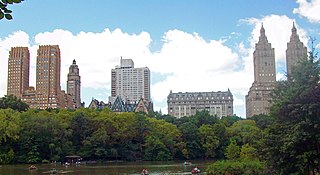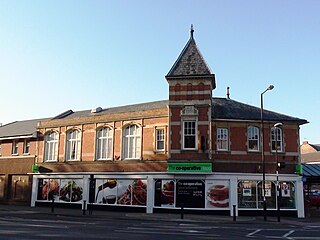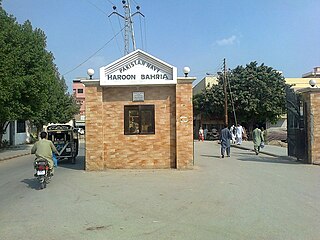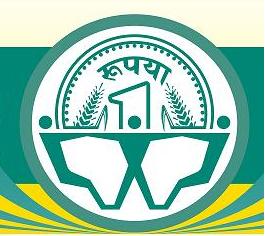
A cooperative is "an autonomous association of persons united voluntarily to meet their common economic, social, and cultural needs and aspirations through a jointly-owned enterprise". Cooperatives are democratically owned by their members, with each member having one vote in electing the board of directors. Cooperatives may include:

A housing cooperative, or housing co-op, is a legal entity, usually a cooperative or a corporation, which owns real estate, consisting of one or more residential buildings; it is one type of housing tenure. Housing cooperatives are a distinctive form of home ownership that have many characteristics that differ from other residential arrangements such as single family home ownership, condominiums and renting.

The Rochdale Principles are a set of ideals for the operation of cooperatives. They were first set out in 1844 by the Rochdale Society of Equitable Pioneers in Rochdale, England and have formed the basis for the principles on which co-operatives around the world continue to operate. The implications of the Rochdale Principles are a focus of study in co-operative economics. The original Rochdale Principles were officially adopted by the International Co-operative Alliance (ICA) in 1937 as the Rochdale Principles of Co-operation. Updated versions of the principles were adopted by the ICA in 1966 as the Co-operative Principles and in 1995 as part of the Statement on the Co-operative Identity.

The International Co-operative Alliance (ICA) is a non-governmental co-operative federation or, more precisely, a co-operative union representing co-operatives and the co-operative movement worldwide. It was founded in 1895 to unite, represent and serve co-operatives worldwide. The Alliance maintains the internationally recognised definition of a co-operative in the Statement on the Co-operative Identity. The ICA represents 313 co-operative federations and organisations in 109 countries.
Akhtar Colony is a neighborhood in Karachi west district of Karachi, Pakistan. It was previously administered as part of Jamshed Town, which was disbanded in 2011.
Mehmoodabad or Mahmudabad is a neighborhood in Karachi East district of Karachi, Pakistan. It was previously administered as part of Jamshed Town, which was disbanded in 2011.

Jamshed Town lies in the central part of Karachi, Pakistan. To the northwest is Liaquatabad Town across the Lyari River, while to the east is Gulshan Town and to the southeast is Korangi Town across the Malir River. Jamshed is bordered by Karachi Cantonment and Clifton Cantonment to the west. The population of Jamshed Town was estimated to be about 730,000 at the 1998 census, of which 99% are Muslim. Urdu speaking constitute an overwhelming majority of the population.

Rizvia Society is a neighborhood in the Karachi Central district of Karachi, Pakistan. It was previously a part of Liaquatabad Town, which was disbanded in 2011. This neighbourhood is predominantly populated by Shia Muslims.
Firdous Colony, officially Firdous Cooperative Housing Society, is a neighborhood in the Karachi Central district of Karachi, Pakistan. It was previously a part of Liaquatabad Town, which was disbanded in 2011.

A consumers' co-operative is an enterprise owned by consumers and managed democratically which aims at fulfilling the needs and aspirations of their members. They operate within the market system, independently of the state, as a form of mutual aid, oriented toward service rather than pecuniary profit. Consumers' cooperatives often take the form of retail outlets owned and operated by their consumers, such as food co-ops. However, there are many types of consumers' cooperatives, operating in areas such as health care, insurance, housing, utilities and personal finance.
Model Town Society is a gated neighborhood in Gulberg, Lahore, Punjab, Pakistan.
A co-operative federation or secondary co-operative is a co-operative in which all members are, in turn, co-operatives. Historically, co-operative federations have predominantly come in the form of co-operative wholesale societies and co-operative unions. Co-operative federations are a means through which co-operatives can fulfill the sixth Co-operative Principle, co-operation among co-operatives. The International Co-operative Alliance notes that “Co-operatives serve their members most effectively and strengthen the co-operative movement by working together through local, national, regional and international structures.”
The history of the cooperative movement concerns the origins and history of cooperatives across the world. Although cooperative arrangements, such as mutual insurance, and principles of cooperation existed long before, the cooperative movement began with the application of cooperative principles to business organization.
Ahsanabad Co-operative Housing Society (ACHS) is one of the neighbourhoods of Gadap Town in Karachi, Sindh, Pakistan.

Naval Colony is a neighbourhood in the Karachi West district of Karachi, Pakistan, that previously was a part of Baldia Town until 2011. It is divided into four sectors, two sectors have 13 streets and two have 14 and each street has around 72 houses. There are four main streets and two commercial streets. There are two Masajid, Masjid Quba and Masjid Nimra, however people have themselves established a few other masajid too. A managing committee is being elected by public poll which surveils the administrative issues of the society.
The cooperative movement in India plays a crucial role in the agricultural sector, banking and housing. Many cooperative societies, particularly in rural areas, increase political participation and are used as a stepping stone by aspiring politicians.

Naya Nazimabad is a famous housing project that is rapidly being developed, built around the famous Manghopir Lake. Naya Nazimabad Cricket Stadium is the home ground for the Karachi Kings, a PSL franchise owned by ARY's CEO Salman Iqbal.

Buldana Urban Cooperative Credit Society was formed on 15 August 1986. Chairman (Mr.) Radheshyamji Chandak started it with capital of 210 USD and 72 members. In a span of 27 years and mainly in last decade under managing director Dr Sukesh Zamwar, the Credit Society has grown to size of 1.1 billion dollar business with more than half a million (700,000) membership. The area of operation is mainly in central and western India in four states of India. Now the society has 333 branches and 5000 employee and 300 warehouses. Total built up area for Warehouse is 5,000,000 sq feet and capacity of 435,000 metric tons. It maintains a presence in most of the metro cities of India and also in rural areas.









